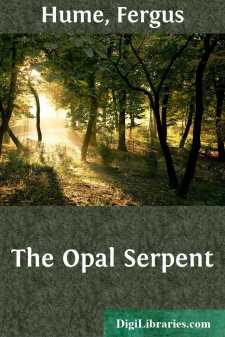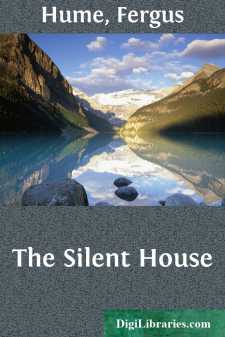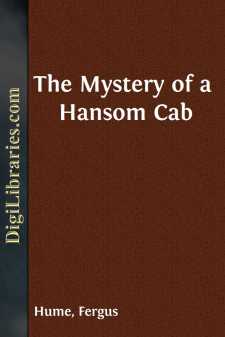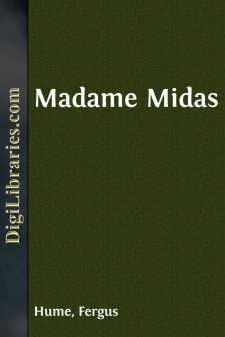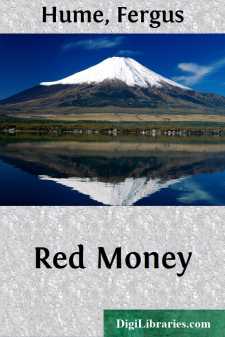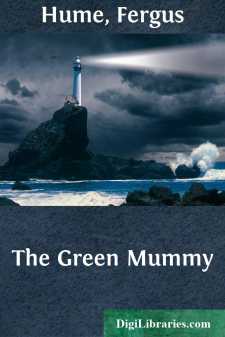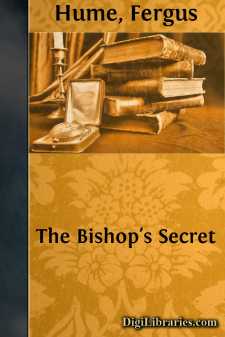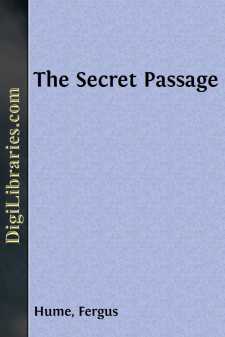Categories
- Antiques & Collectibles 13
- Architecture 36
- Art 48
- Bibles 22
- Biography & Autobiography 813
- Body, Mind & Spirit 142
- Business & Economics 28
- Children's Books 14
- Children's Fiction 11
- Computers 4
- Cooking 94
- Crafts & Hobbies 4
- Drama 346
- Education 46
- Family & Relationships 57
- Fiction 11828
- Games 19
- Gardening 17
- Health & Fitness 34
- History 1377
- House & Home 1
- Humor 147
- Juvenile Fiction 1873
- Juvenile Nonfiction 202
- Language Arts & Disciplines 88
- Law 16
- Literary Collections 686
- Literary Criticism 179
- Mathematics 13
- Medical 41
- Music 40
- Nature 179
- Non-Classifiable 1768
- Performing Arts 7
- Periodicals 1453
- Philosophy 64
- Photography 2
- Poetry 896
- Political Science 203
- Psychology 42
- Reference 154
- Religion 513
- Science 126
- Self-Help 84
- Social Science 81
- Sports & Recreation 34
- Study Aids 3
- Technology & Engineering 59
- Transportation 23
- Travel 463
- True Crime 29
The Opal Serpent
by: Fergus Hume
Categories:
Description:
Excerpt
DON QUIXOTE IN LONDON
Simon Beecot was a country gentleman with a small income, a small estate and a mind considerably smaller than either. He dwelt at Wargrove in Essex and spent his idle hours—of which he possessed a daily and nightly twenty-four—in snarling at his faded wife and in snapping between whiles at his son. Mrs. Beecot, having been bullied into old age long before her time, accepted sour looks and hard words as necessary to God's providence, but Paul, a fiery youth, resented useless nagging. He owned more brain-power than his progenitor, and to this favoring of Nature paterfamilias naturally objected. Paul also desired fame, which was likewise a crime in the fire-side tyrant's eyes.
As there were no other children Paul was heir to the Beecot acres, therefore their present proprietor suggested that his son should wait with idle hands for the falling in of the heritage. In plain words, Mr. Beecot, coming of a long line of middle-class loafers, wished his son to be a loafer also. Again, when Mrs. Beecot retired to a tearful rest, her bully found Paul a useful person on whom to expend his spleen. Should this whipping-boy leave, Mr. Beecot would have to forego this enjoyment, as servants object to being sworn at without cause. For years Mr. Beecot indulged in bouts of bad temper, till Paul, finding twenty-five too dignified an age to tolerate abuse, announced his intention of storming London as a scribbler.
The parents objected in detail. Mrs. Beecot, after her kind, dissolved in tears, and made reference to young birds leaving the nest, while her husband, puffed out like a frog, and redder than the wattles of a turkey-cock, exhausted himself in well-chosen expressions. Paul increased the use of these by fixing a day for his departure. The female Beecot retired to bed with the assistance of a maid, burnt feathers and sal volatile, and the male, as a last and clinching argument, figuratively buttoned up his pockets.
"Not one shilling will you get from me," said Beecot senior, with the graceful addition of vigorous adjectives.
"I don't ask for money," said Paul, keeping his temper, for after all the turkey-cock was his father. "I have saved fifty pounds. Not out of my pocket-money," he added hastily, seeing further objections on the way. "I earned it by writing short stories."
"The confounded mercantile instinct," snorted paterfamilias, only he used stronger words. "Your mother's uncle was in trade. Thank Heaven none of my people ever used hands or brains. The Beecots lived like gentlemen."
"I should say like cabbages from your description, father."
"No insolence, sir. How dare you disgrace your family? Writing tales indeed! Rubbish I expect" (here several adjectives). "And you took money I'll be bound, eh! eh!"
"I have just informed you that I took all I could get," said Beecot junior, quietly. "I'll live in Town on my savings. When I make a name and a fortune I'll return."
"Never! never!" gobbled the turkey-cock. "If you descend to the gutter you can wallow there....


